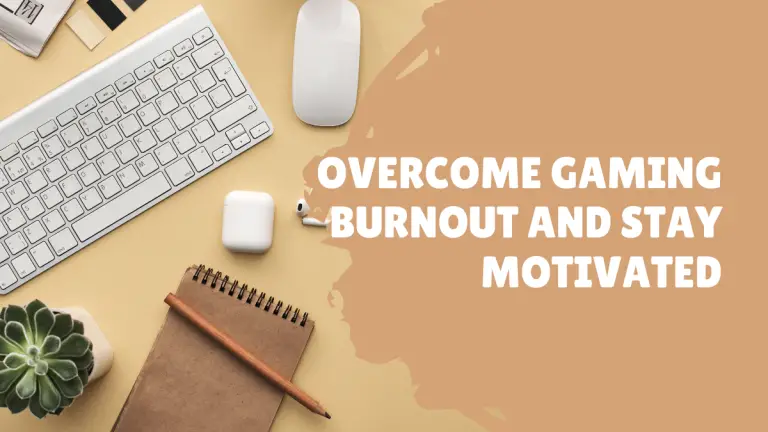How to Prevent Overheating in Gaming Laptops?
Are you tired of your gaming laptop turning into a scorching hot furnace within minutes of starting your favourite game? We feel your pain. Nothing kills the thrill of gaming faster than an overheating laptop that abruptly shuts down or slows down gameplay to a crawl.
But fret not fellow gamers! In this blog post, we have compiled seven essential tips that will help you keep your beloved gaming laptop cool and prevent it from reaching its boiling point. So grab a cold drink, sit back, and let’s dive right in to ensure uninterrupted hours of immersive gaming bliss!
Understand the Signs your Laptop is Heating Up
If you’re noticing that your gaming laptop is getting hot to the touch, it might be time to take some preventive measures. The most obvious sign that your laptop is overheating is when it starts feeling too warm to hold, whether that means feeling like a sauna or uncomfortably warm to the touch.
Below are other signs that may indicate your laptop is overheating:
- Your computer won’t turn on even after you’ve tried plugging it in and waiting for a few minutes.
- Your graphics card (if there is one) begins producing loud noises.
- You see large amounts of heat coming from the vents on the back or bottom of your laptop.
- The keyboard becomes warped or melted.
If any of these signs appear, it’s time to take action. Here are three key tips for keeping your gaming laptop from overheating:
- Keep an eye on the temperature indicator. This will let you know immediately if something is going wrong and allow you to take corrective action sooner rather than later.
- Ensure all your devices are properly plugged in and properly seated in their sockets. Overloaded ports can cause havoc with your device’s power delivery, leading to overheating problems.
- Close all programs and tabs open in your browser except for those needed for gaming—This will help keep Memory and CPU usage down, which can also help lower temperatures.
Take Measures to Reduce Physical Heat Production
- Make sure your gaming laptop has a good cooling system. Make sure your gaming laptop has a good thermal management system.
- Keep your laptop clean. Keep your laptop clean to prevent bacteria and dust build-up from causing your laptop to overheat.
- Use the cooling pad. Use the cooling pad to keep your gaming laptop cool when you are not using it.
Use a Fan to Help airflow.
If you’re like most gamers, your laptop is your go-to device when it comes to enjoying your favorite games. But like any other piece of equipment, gaming laptops can overheat if not taken care of properly. Following these essential tips lets you keep your gaming laptop cool and its battery life healthy.
- Use a fan to help airflow. Using a fan is a good way to keep your gaming laptop from overheating! Not only will the extra cooling help keep your system running smoothly, but it also helps to save on battery life.
- Avoid playing in an uncomfortable position. One of the best ways to avoid overheating is to avoid playing in an uncomfortable position! If you’re sitting close to the radiators on your laptop, raise yourself up so that you’re not directly resting against them. Additionally, move any heavy items out of the way so that they don’t block airflow or obstruct the heat vents on your laptop.
- Keep windows open and use air conditioning when necessary. Windows are another big contributor to airflow in a room – keeping them open as much as possible help reduce congestion and improve airflow inside your gaming laptop – even when AC is turned off! When AC does become necessary, be sure to adjust settings accordingly so that it doesn’t blow warm air onto your computer or heaters.
Beware of External Heat Sources
- Beware of External Heat Sources – One of the most common causes of gaming laptops overheating is excessive use of external heat sources, such as fans or graphics cards. Suppose you’re playing a game with a high frame rate or are using a graphics card that requires a lot of power. In that case, it’s important to keep your laptop cool using structural features like an internal cooling system or ventilation.
- Use Internal Cooling Systems – Laptops often have internal cooling systems that can keep your laptop cool even when using external heat sources. To activate your internal cooling system, press and hold down the power button for about 10 seconds until you see the POST screen (Power On Self Test). Then release the power button and wait for the laptop to complete its self-test before closing the lid. If you don’t have an internal cooling system, try using a fan to circulate air around your laptop or place it in an area with good airflow.
- Keep Ventilation Open – One way to help prevent your gaming laptop from overheating is to keep ventilation open by opening the side panels or tenting them so they can easily flow air around your computer. This will allow more air to reach vents on the bottom of your laptop which can help dissipate heat away from it.
Keep Memory Cool and Free from Overheating
- Keep your gaming laptop cool by using a cooling pad: A cooling pad can be a great way to keep your gaming laptop cool, particularly if it’s overheating regularly. By placing the laptop on the pad, you can help circulate air around it and keep it cooler. You may also need to open up the laptop’s vents more to let air pass through more easily.
- Use a fan: Sometimes, however, even a cooling pad and opening up the laptop’s vents aren’t enough to prevent your gaming laptop from overheating. In this case, you may need to use a fan. Opening up the laptop’s back cover will allow for more ventilation, airflow, and faster cooling overall. Place the fan near the vent openings so that it can take advantage of all of the extra airflow.
Conclusion
Keeping your gaming laptop cool is essential to prolonging its lifespan and preventing any damage. Follow these tips to keep your gaming laptop cool and protected from excess heat:
- Keep the computer clean – debris can accumulate on the processor, leading to higher temperatures and reduced performance. Regularly clear away any dust, hair, or lint build-up on the computer case and internal components.
- Install an effective cooling fan – without an adequate cooling system, even the most powerful hardware can quickly overheat. Place the laptop in a well-ventilated area with enough airflow around it for ventilation; you may also need to purchase a separate cooling fan for gaming laptops.
- Ensure your graphics card is properly cooled – high-performing graphics cards generate considerable heat, which must be dissipated efficiently. Try keeping the card closed when not in use or placing it inside a thermal shield/ cooler if possible.







